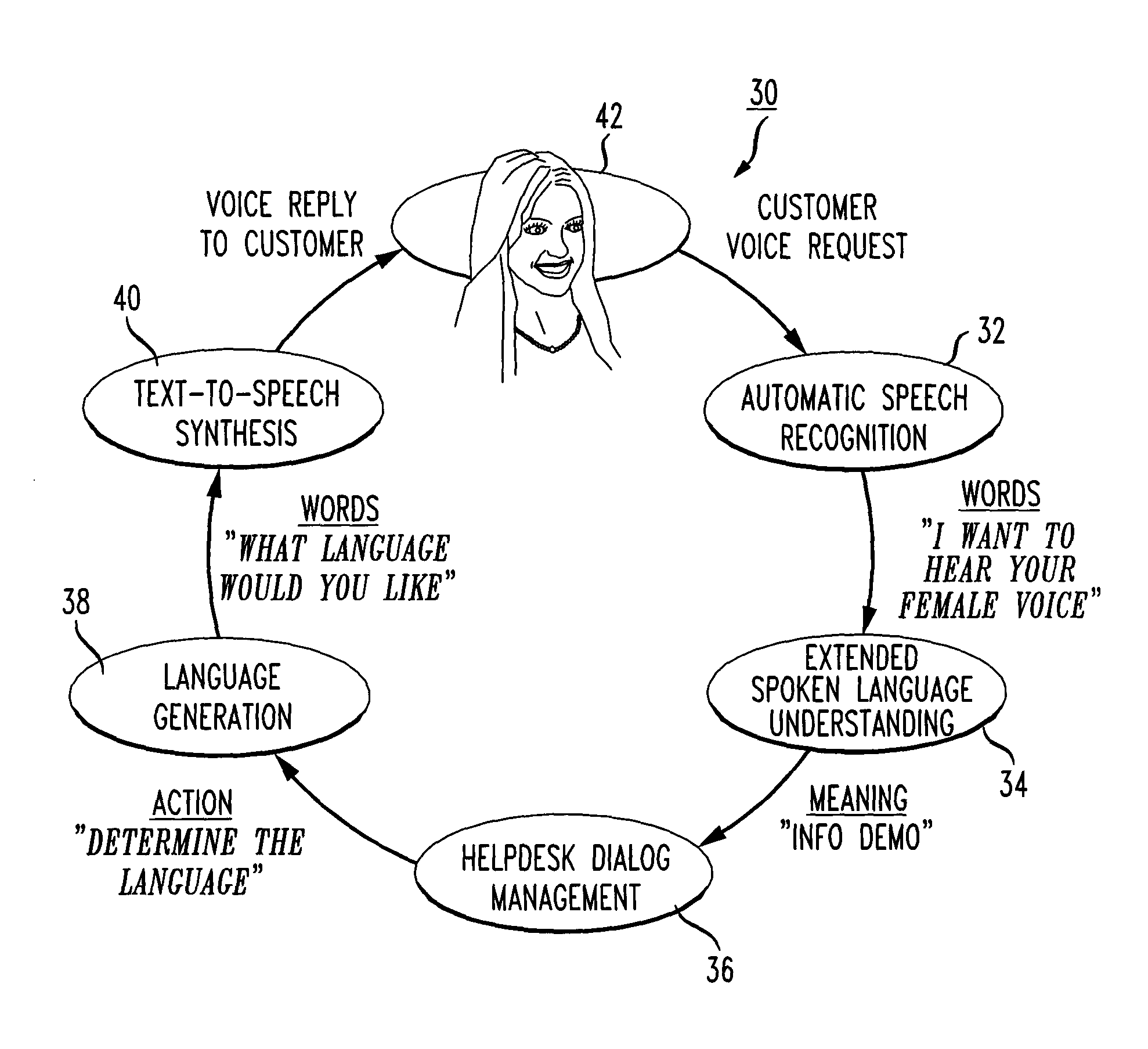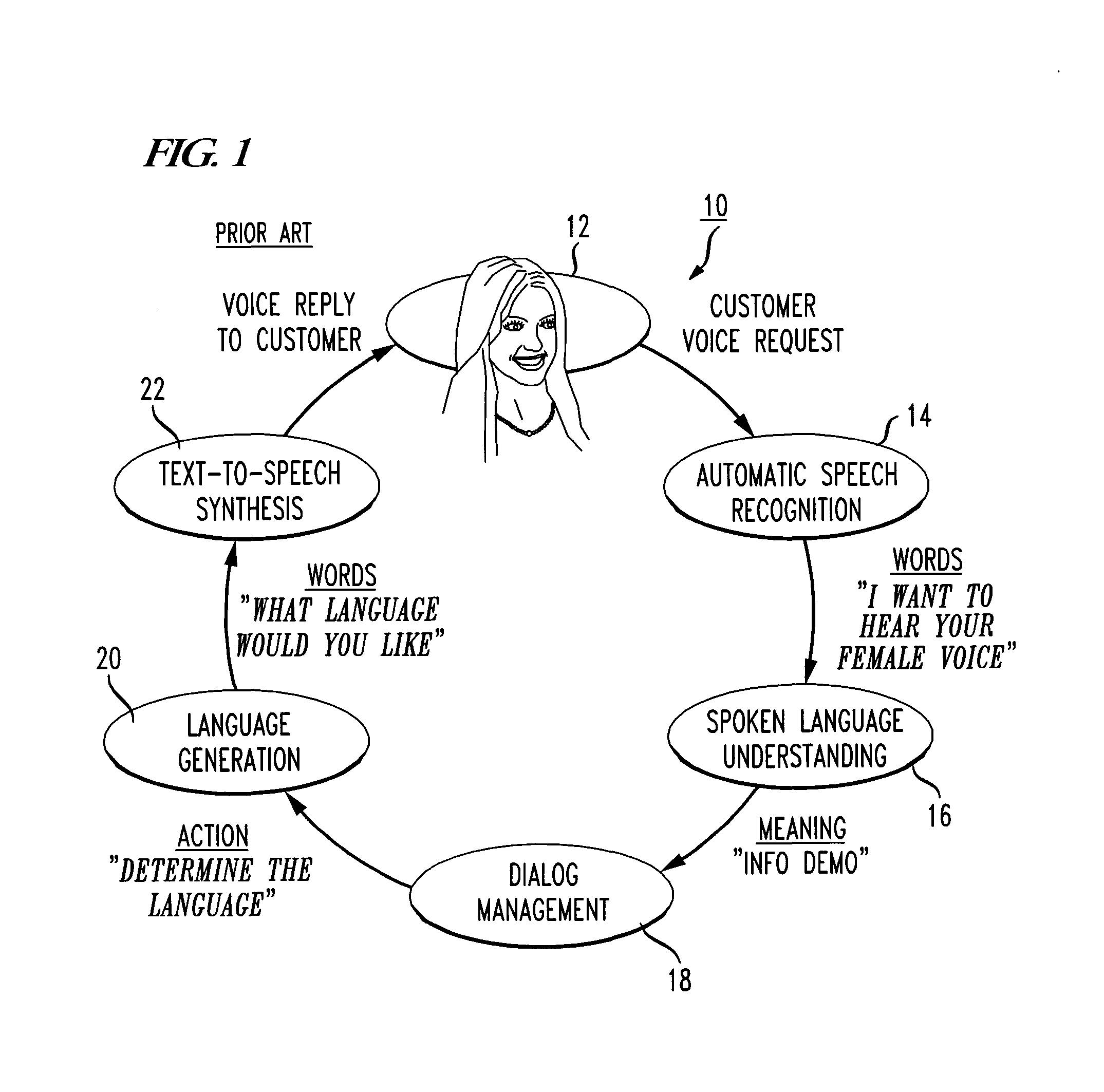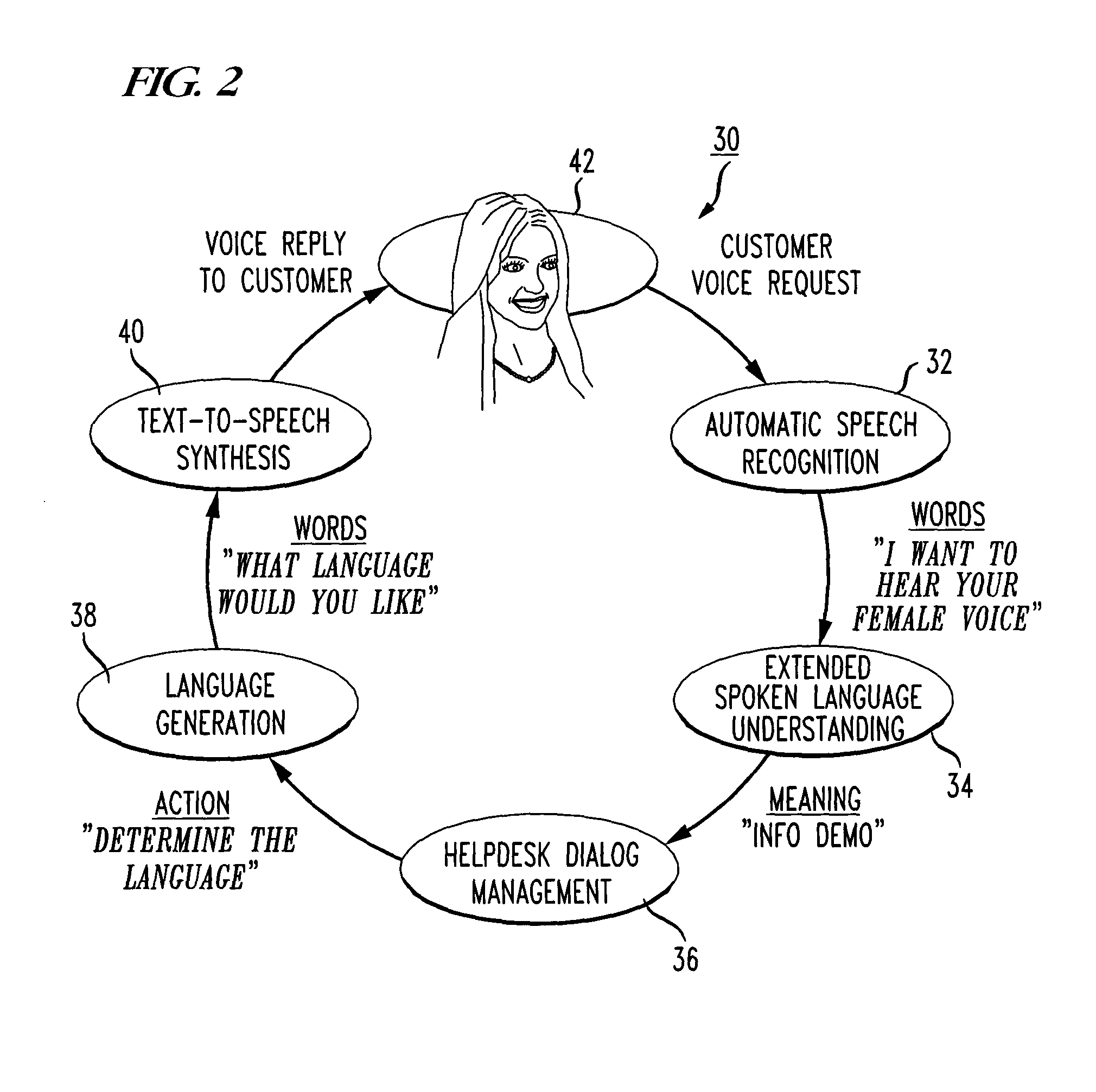Method of Handling Frequently Asked Questions in a Natural Language Dialog Service
a natural language and dialog service technology, applied in the field of dialect systems, can solve the problems of preventing callers from accessing information, poor user interface, confusion and frustration, etc., and achieve the effect of improving customer relationships, efficient and pleasant manner, and improving the handling of frequently asked questions
- Summary
- Abstract
- Description
- Claims
- Application Information
AI Technical Summary
Benefits of technology
Problems solved by technology
Method used
Image
Examples
Embodiment Construction
[0025]The present invention may be understood according to exemplary embodiments disclosed herein. When creating a spoken dialog service, experimental results are presented in terms of recognition accuracy, understanding accuracy and call completion rate. In an experimental spoken dialog service according to the present invention, a study was made of results on a set of 1000 actual dialogs collected during deployment.
[0026]There are several technology requirements needed for a voice-enabled help desk application. FIG. 2 illustrates some of the core necessary components of such a system 30, including an automatic speech recognizer (ASR) 32 capable of recognizing large-vocabulary spontaneous speech, a spoken language understanding module (SLU) 34 that parses the natural language input into relevant information, a dialog manager (DM) 36 that operates in a mixed-initiative mode, a language generation module 38 and a text-to-speech module (TTS) 40 capable of generating high-quality synth...
PUM
 Login to View More
Login to View More Abstract
Description
Claims
Application Information
 Login to View More
Login to View More - R&D
- Intellectual Property
- Life Sciences
- Materials
- Tech Scout
- Unparalleled Data Quality
- Higher Quality Content
- 60% Fewer Hallucinations
Browse by: Latest US Patents, China's latest patents, Technical Efficacy Thesaurus, Application Domain, Technology Topic, Popular Technical Reports.
© 2025 PatSnap. All rights reserved.Legal|Privacy policy|Modern Slavery Act Transparency Statement|Sitemap|About US| Contact US: help@patsnap.com



